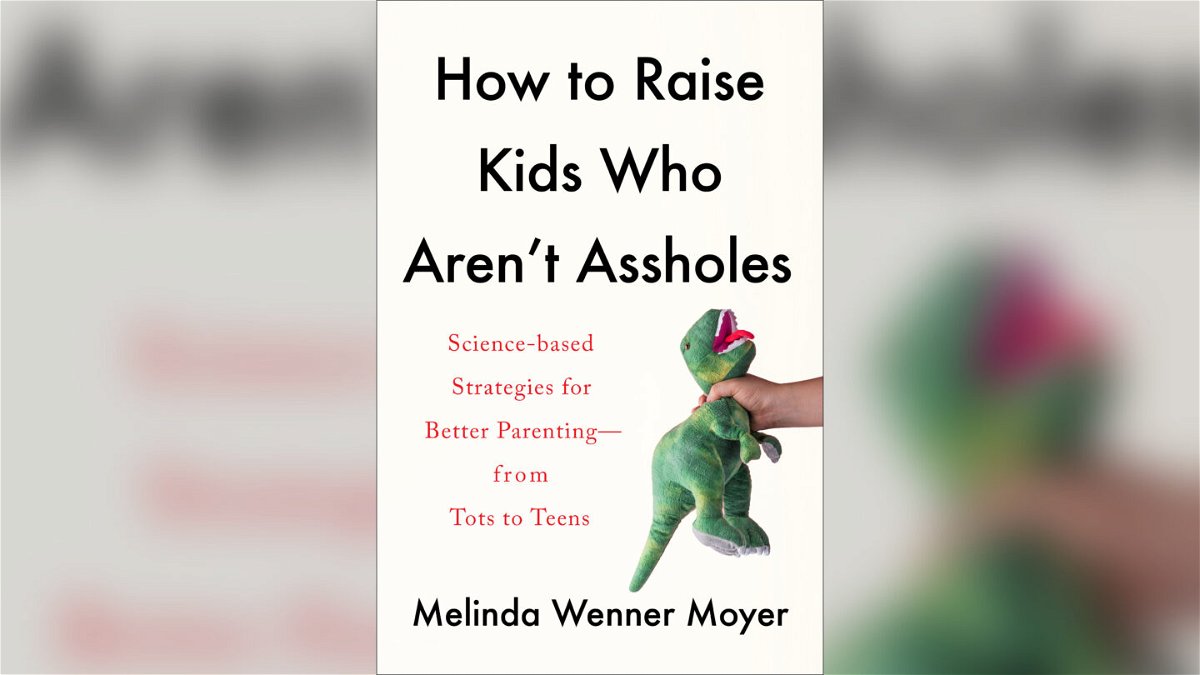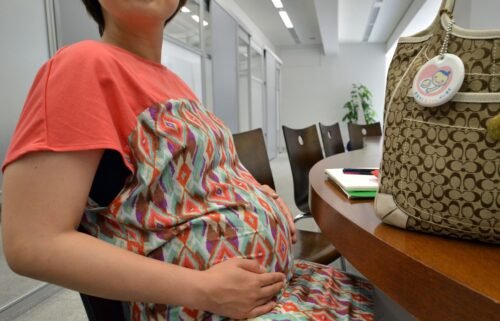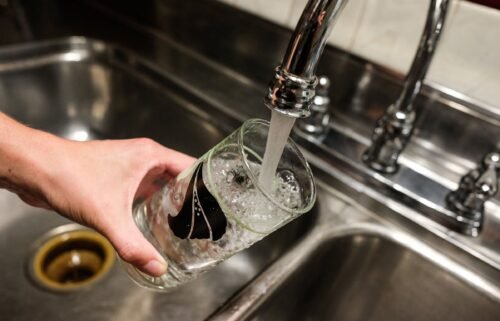‘How to Raise Kids who Aren’t A**holes’ — or maybe even kind

Kindness matters is the message of Melinda Wenner Moyer's science-based book "How to Raise Kids Who Aren't A**holes."
By Elissa Strauss, CNN
The desire to raise good people is fairly universal among adults with kids in their lives. Most of us want our kids to grow up to be kind and compassionate adults.
We mean it, we really do, but our kids often hear something else. Research from the Harvard Graduate School of Education found that 80% of youth think their parents are more interested in their children’s achievement or happiness than whether or not they are caring for others.
In her new book “How to Raise Kids Who Aren’t A**holes: Science-Based Strategies for Better Parenting–from Tots to Teens,” science journalist Melinda Wenner Moyer cuts through the data on the subject. She looks at research on gunplay, screen time, shyness, resilience and more, helping parents effectively send the message that kindness matters.
CNN spoke with Moyer about what we are getting right, what we’re doing wrong, how to teach kindness, and why it’s hard to raise a kind kid if we’re not being kind ourselves.
This interview has been lightly edited and condensed for clarity.
CNN: What inspired you to write this book?
Melinda Wenner Moyer: Two and half years ago I started to get frustrated by the bad adult behavior I saw happening all around me. It made me think, what are my kids learning? Who are my kids learning from? It made me realize that what I wanted more than anything was for my kids to not grow up to be a**holes. And I realized I didn’t know how to do this.
I began looking into the science about how to build character and values and was surprised by how much research there was.
CNN: Based on what you discovered, what are some of the things well-meaning adults are doing wrong when it comes to raising kind kids?
Moyer: First, I want to say that I hate to frame anything as “wrong.” The last thing I want to do is shame parents or pressure parents to feel like they have to do everything right. We have a lot of leeway as parents and even when we do things that are not the most constructive, our kids will be fine.
One thing I saw come up again and again in the research is that a lot of parents avoid talking with their kids about nuanced, complicated topics like race, sex or pornography. But kids, starting from when they are little, are detectives trying to figure out how the world works. They notice a racial hierarchy, gender hierarchy and the sexual undertones, or overtones, everywhere. Disney movies have them.
Kids are being exposed to these big, nuanced issues, and if we aren’t there to expose them to these issues, they will get the information elsewhere and then make assumptions that are inaccurate. It is far better to have intentional conversations on difficult topics. Even if you think they are too young, they are not, as long as you do it in an age-appropriate manner.
One more thing is how we handle our kids’ feelings. We attempt to make our kids feel better when they are mad or bad or sad. We will minimize the feelings, or shame them, by saying things like “stop acting like a baby,” or, for boys, “stop acting like a girl.”
We do this because we want to rescue our kids from their negative feelings. Research tells us this is bad for a couple of reasons. We are telling them their feelings are wrong, and to bottle up their feelings and hide them. It doesn’t help our kids learn the skills to manage them.
Also, parents tend to shame boys more for having feelings of sadness or fear because it isn’t seen as masculine. But boys who have been taught to feel shame about these feelings are more likely to be aggressive as they get older.
CNN: And what might parents intuitively be doing right?
Moyer: One is modeling kindness and generosity in front of our kids. That is really good because kids learn from what we do rather than what we say.
Over the past five years, I’ve seen a lot more parents include kids in social movements, bringing them to protests, volunteering or encouraging them to donate their allowance money. When we include kids, we show them that it is important to care about others.
CNN: You found research connecting selflessness to success, which goes against much of what our competitive culture tells us.
Moyer: I often hear from skeptical readers who ask, “If we want our kids to succeed, isn’t raising them to be kind and compassionate going to hold them back?” Our culture still tells us that to get ahead in the world, you need to be an arrogant a**hole.
There are certainly exceptions, but overall, research points to the opposite: People who are kind and compassionate are usually more successful. When you treat people well, people want to treat you well.
CNN: As I read your book, it struck me that parents can learn a lot about themselves in this process. Raising kind kids helps us think harder about how we could be kinder and what kindness means to us.
Moyer: I hope that this book inspires some self-reflection because to really model for your kids what you hope they become, you have to be pretty intentional. You have to think about what kindness means to you.
It helps to prioritize and think, “What is the most important thing for my kids to grow up and be or do?” Is it to be compassionate? To be helpful? Honest? Think about how to weave those values into your relationship with your kids.
It’s important to remember that we can’t do all the things all the time. Also, our priorities can change.
CNN: How do we balance our expectations for our kids and ourselves to be kind with an acceptance of our louder, angrier impulses?
Moyer: It’s really important to be open and honest. It’s OK for us to have big feelings; feelings are part of being human and are normal. We should accept our own big feelings, and the way we respond to situations when we are angry. That is OK. We are human and everybody makes mistakes and that is just part of life.
It is really helpful for kids to see us model that self-acceptance. It’s also really good for them to see us apologize afterward, modeling the behavior we want them to do longer down the line. When we take responsibility, a lot of good can come out of our “mistakes” as parents.
The-CNN-Wire
™ & © 2021 Cable News Network, Inc., a WarnerMedia Company. All rights reserved.
Elissa Strauss is a regular contributor to CNN, where she writes about the politics and culture of parenthood.



